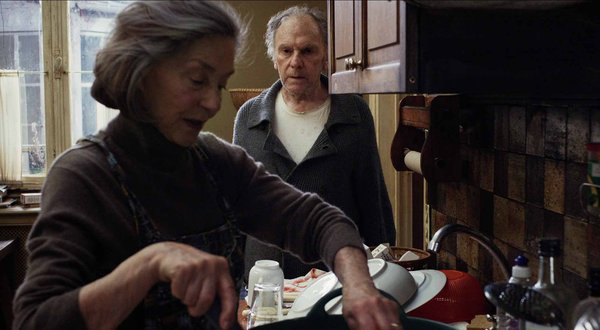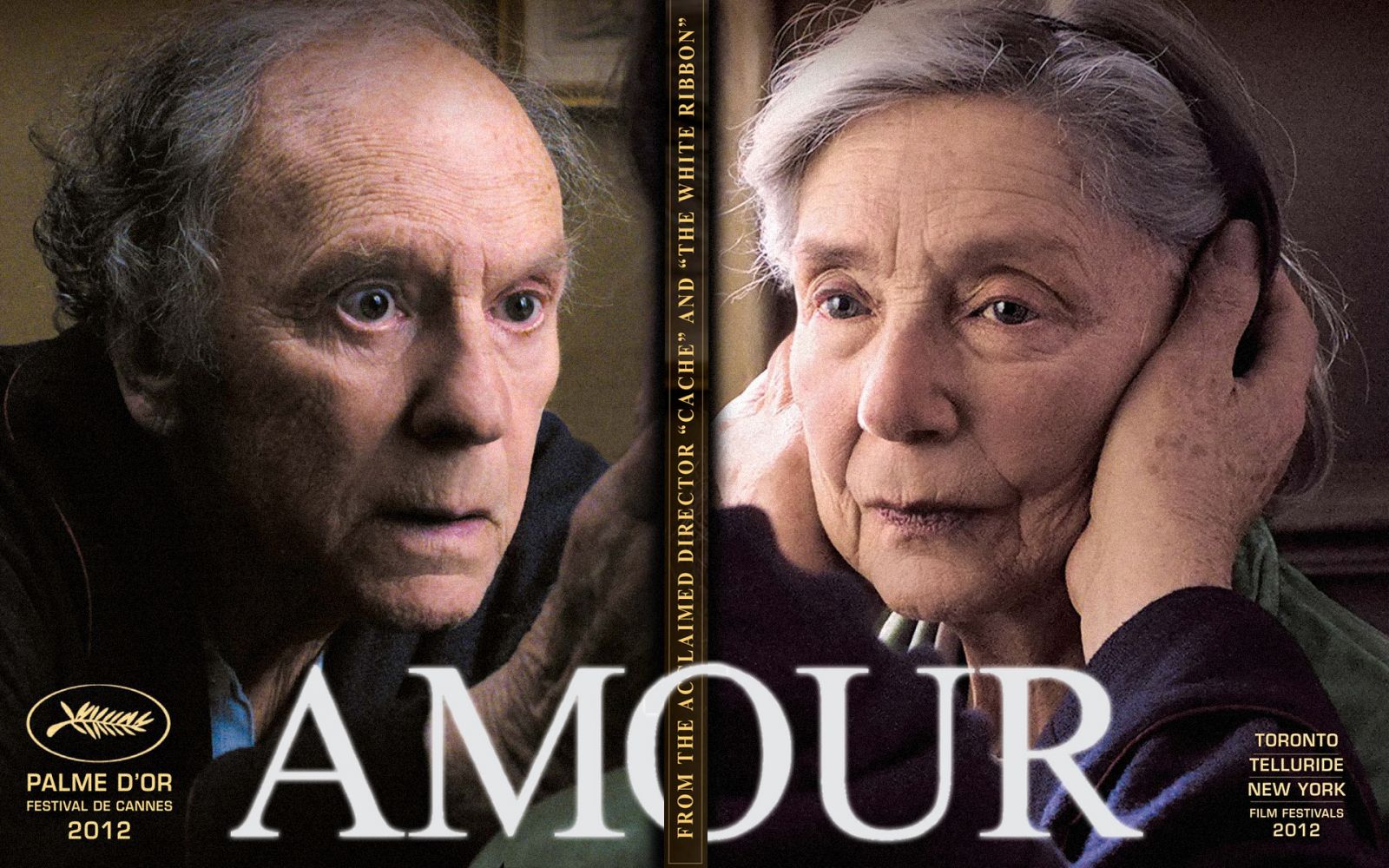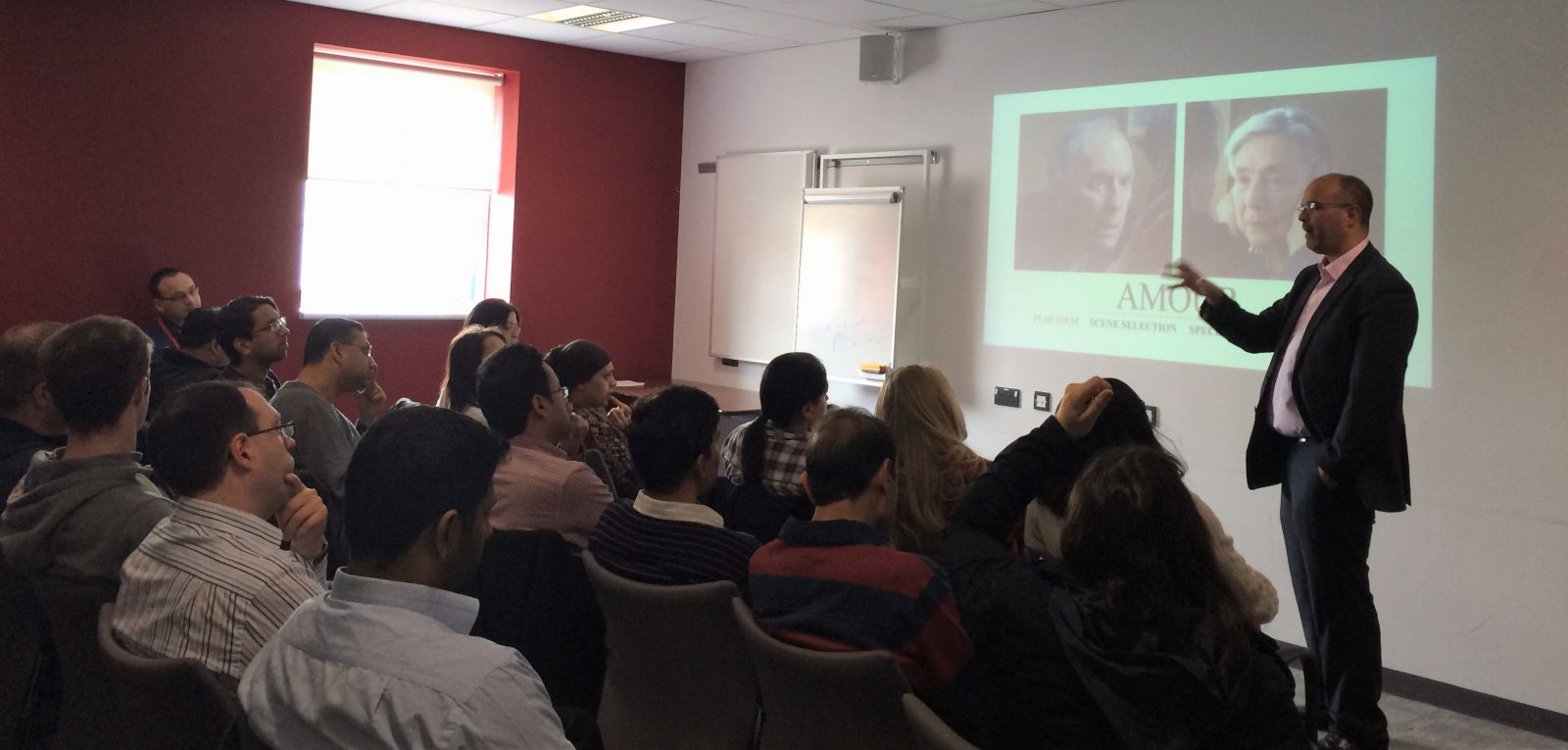
|
Authors | Institution |
|
R Parikh K Wardle S Gajree S Pradhan |
Royal Oldham Hospital and Salford University - Geriatric Medicine - Oldham - United Kingdom Salford Royal Foundation Trust - Geriatric Medicine - Salford - United Kingdom |
 |
|
||||||
| Using Film to Explore Complex Areas of Geriatric Medicine |
The use of cinema in medical education has the potential to engage learners and prompt reflection. However, little is known about its utility in geriatric medicine.
When designing our Psychiatry of Old Age Module (Salford University - MSc Geriatric Medicine) we wanted to explore whether a film could engage learners and prompt reflection on dementia care.

To close the module, participants watched Amour as a group. This drama depicts the interplay of physical illness, dementia and caregiver strain.
Learners were asked to record reflections during the film and after an immediately subsequent discussion. We collated learners’ responses and qualitatively analysed them.
We demonstrated that a carefully chosen film can help learners consolidate and reflect upon knowledge acquired during an MSc module.
We would like to thank Dr Ross Overshott (Consultant Psychiatrist, Salford Royal Hospital) who facilitated the discussion. We are grateful to him for his help and advice during the creation of this teaching intervention.
Amour was written and directed by Michael Haneke and released in 2012.

Responses were obtained from 18 learners. 78% rated the session as ‘very-good’.
During the film, reflections centred on carer strain and the need to explore this emotionally charged area in real-life practice.
After the discussion, learners commented that the film was engaging and effectively prompted reflections upon complex patient management issues. Additionally, solutions as to how we should proactively care for patients and carers were generated.
Reflections whilst watching the film:
“Carer’s psychological distress can be devastating. It is important for the medical profession to recognise the carer’s stress.”
“Crucial scene where she asks him to promise he’ll never send her to hospital – essentially dictates the remainder of the film. He is incredibly courageous throughout.”
Reflections after watching the film
“Medical professionals should be proactive and provide support to the carer.”
“Various aspects of coping – while the husband here coped reasonably well physically and financially, he could not cope mentally towards the various aspects of his wife’s deterioration and the fact that she was waiting to die.”
“Improving care of patients with disability. Dealing with emotions and relatives. Coping with wishes.”
“Well discussed and ideas from different peers on aspects related to elderly care, abuse and carer stress.”

A film, paired with an appropriately facilitated discussion, can highlight areas which may effectively remain hidden with more commonly utilised instructional methods and materials.
The fact film may be perceived in different ways may usefully trigger discussion and debate.

 Send Email
Send Email